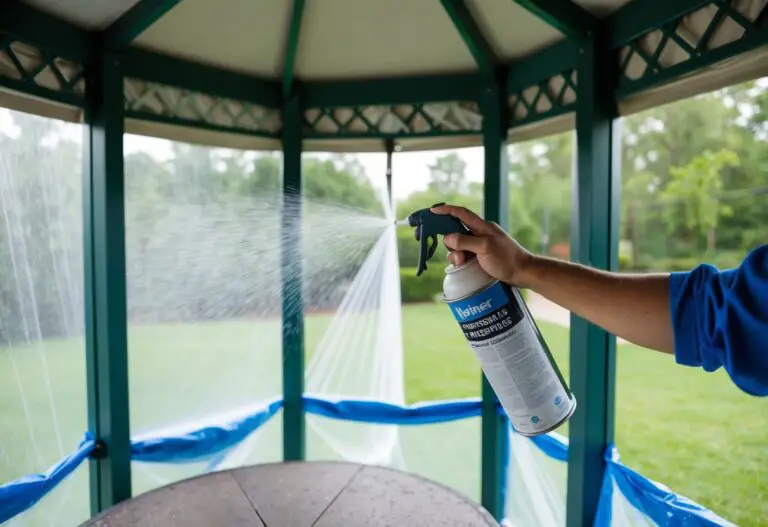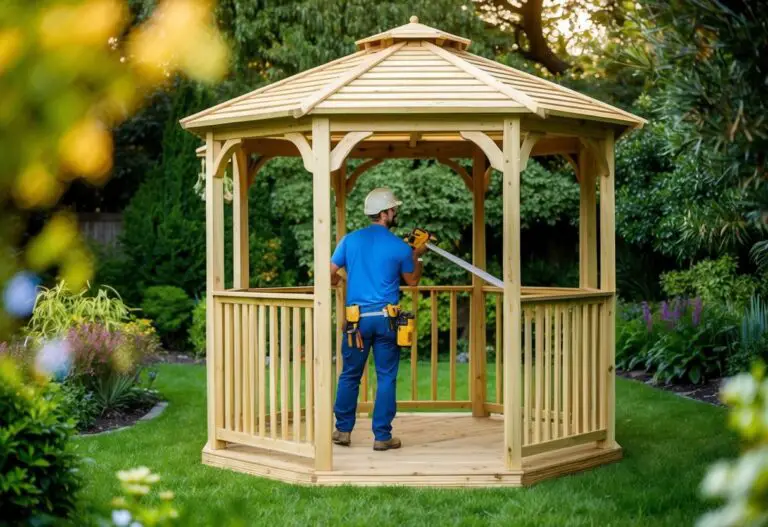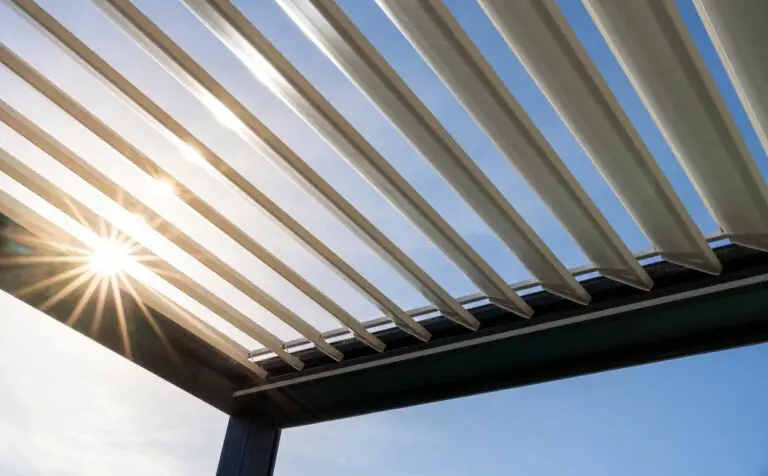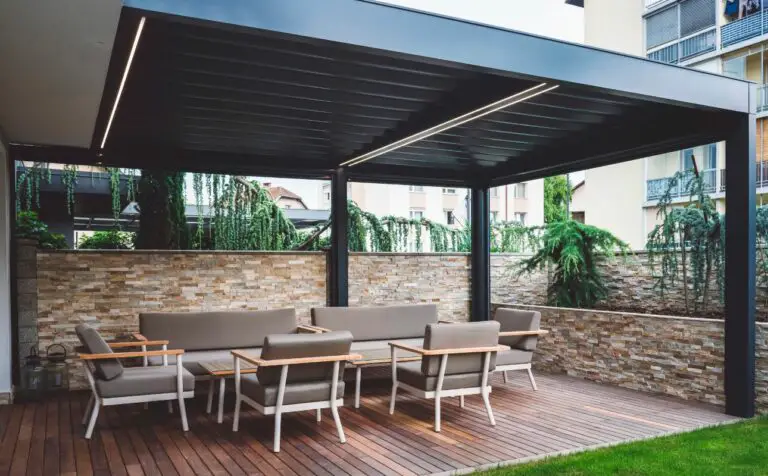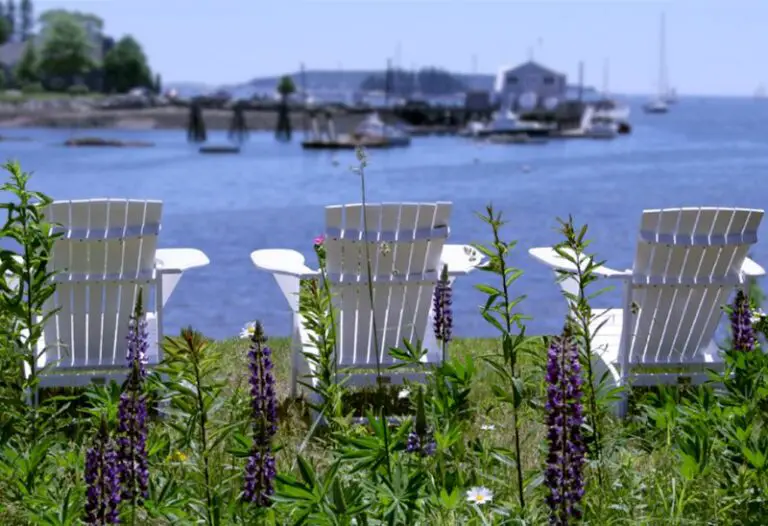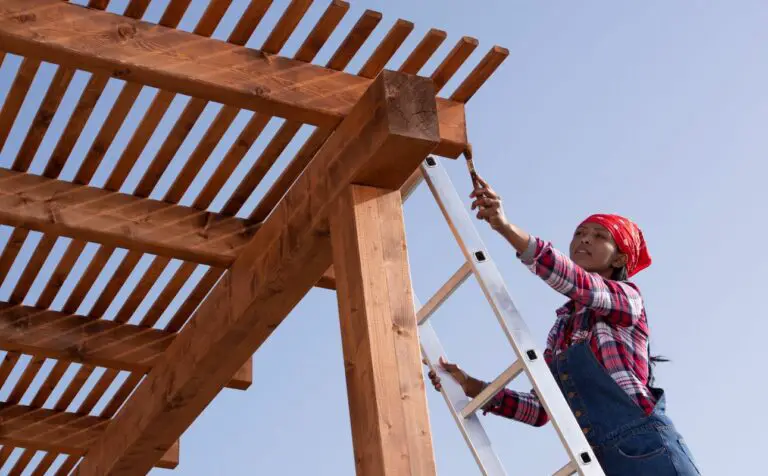Pergolas are a delightful addition to any outdoor space, offering a peaceful retreat for relaxing or entertaining guests. But how long can you expect a pergola to last?
A wooden pergola can endure for approximately five years with moderate upkeep. However, if you wish to prolong its life span to 10-12 years, it is advisable to perform annual cleaning, staining, and sealing.
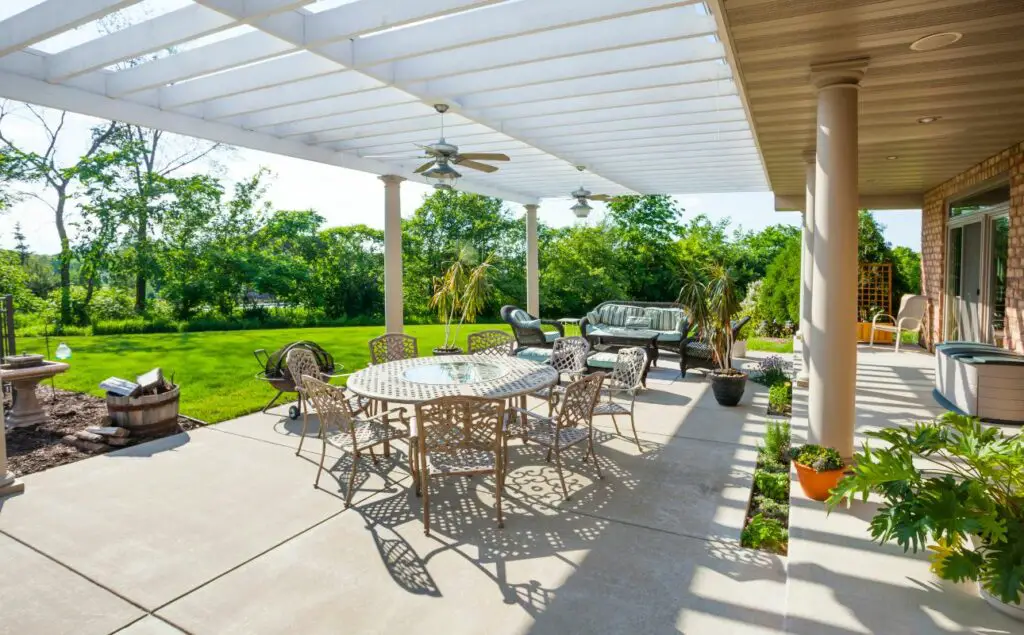
Factors Affecting Pergola Lifespan
Pergolas can enhance the aesthetic appeal of your outdoor space while providing shade and a spot to relax. However, they are not immune to wear and tear caused by various factors.
One of the most significant determinants of pergola lifespan is weather resistance. Since it will be exposed to natural elements such as rain, snow, wind, and sunlight, you need one that can withstand these conditions without deteriorating quickly.
Installation quality is another critical factor affecting how long your pergola lasts. A well-built structure with sturdy materials is more likely to stand the test of time than one constructed using substandard materials or poorly installed.
The design of your pergola may also affect its longevity since some styles might be more susceptible to damage than others over time.
Material Options For Pergola Construction
One popular option is aluminum. This material boasts several benefits such as durability (it won’t rust or rot), low maintenance requirements, and resistance to weather damage. Plus, with modern advances in technology, aluminum can now mimic the look of wood without the associated upkeep costs.
On the other hand, cedar has been a classic choice for pergolas due to its natural beauty and scent. While it does require regular staining or sealing, cedar offers a charming rustic aesthetic that can enhance any outdoor space.
Cost is another important factor when choosing between materials. Wood pergolas tend to be less expensive than vinyl ones; however, they may require more maintenance over time which could lead to additional costs down the line.
Vinyl options are typically pricier upfront but have lower long-term expenses since they do not need much upkeep beyond occasional cleaning.
Ultimately, your choice of material will depend on your personal preferences and budget.
Wood Pergolas: Maintenance And Longevity
Wood is a popular choice due to its natural beauty and versatility in design. However, it requires regular upkeep to ensure it lasts as long as possible.
Pergola maintenance includes cleaning and sealing the wood regularly. Dirt and debris can accumulate on the surface of the wood, which can cause discoloration or even mold growth over time. Cleaning with a mild detergent solution and scrubbing with a soft-bristled brush will help prevent this from happening.
Sealing your pergola every few years will also protect it from weathering effects such as fading and warping. Weathering effects are common occurrences when dealing with outdoor structures made of wood. UV rays from the sun can cause fading, while moisture can lead to warping or rotting if left untreated.
Properly maintained wooden pergolas can last anywhere from 10-25 years depending on factors such as climate conditions, type of wood used, and frequency of maintenance performed.
Metal Pergolas: Durability And Rust-Resistance
The sound of raindrops tapping on a metal pergola can create a cozy and calming atmosphere. But while the sounds may be pleasing to hear, it’s important to consider how long these structures will last.
Metal pergolas are known for their durability and rust resistance, making them an excellent choice for anyone seeking low-maintenance outdoor living. When properly built with high-quality materials, such as powder-coated aluminum or steel, metal pergolas can last up to 20 years or more.
This lifespan also depends on factors such as climate conditions and maintenance efforts. For instance, those residing in areas that experience harsh weather conditions should consider using treated metals or additional protective coatings to extend their life span.
One key characteristic of metal pergolas is their corrosion resistance. Unlike wood or vinyl options, they won’t rot or deteriorate when exposed to moisture over time. This means homeowners don’t have to worry about replacing boards or slats every few years due to water damage.
Benefits of Metal Pergolas
- Durable construction
- Low-maintenance upkeep
- Rust-resistant material
- Versatile design options
Vinyl Pergolas: Low-Maintenance And Longevity
Vinyl pergolas have been gaining popularity in recent years due to their durability and minimal upkeep requirements.
Unlike wood, vinyl does not rot, fade or attract pests such as termites. This means that a vinyl pergola can last up to 20-30 years without needing any major repairs.
While wood is often the go-to material for traditionalists seeking a rustic look, it comes with its own set of challenges. Wood requires regular maintenance such as staining or sealing to prevent damage from weather conditions like rain and snow.
Additionally, wood is more susceptible to insect infestations which can cause structural damage over time.
When comparing costs between vinyl and wood pergolas, while initially more expensive than wood, the longevity of vinyl may be worth the investment in the long run.
Environmental Conditions And Pergola Lifespan
As with any outdoor structure, the lifespan of a pergola can be affected by environmental conditions. Weathering effects such as wind, rain, and sun exposure can take their toll on even the most well-constructed pergolas.
In areas with harsher climates or frequent severe weather events, the lifespan may be shorter than in more moderate environments.
Maintenance requirements are also an important factor to consider when looking at pergola lifespan. Regular cleaning and upkeep can help extend the life of a pergola while neglecting maintenance tasks can lead to premature deterioration.
Depending on the material used for construction (such as wood versus vinyl), different maintenance needs may apply.
Pergola Maintenance: Tips And Best Practices
Pergolas can last for many years with proper maintenance. Regular upkeep is important to ensure the longevity of your pergola. This includes cleaning, staining, and repair.
- Cleaning should be done at least once a year to remove dirt and debris that can cause damage over time. Use a soft-bristled brush or power washer on low pressure to clean the surface. Avoid using harsh chemicals that can damage the wood.
- Staining techniques are important for maintaining the appearance of your pergola. Choose a stain that is designed for outdoor use and apply it every few years as needed. This will help protect against weathering and rotting.
- If you notice any signs of damage, such as cracks or splits in the wood, repair options include filling with epoxy putty or replacing damaged pieces altogether.
Remember, regular maintenance is key to ensuring the long life of your pergola. By following these simple tips and best practices, you can enjoy your beautiful outdoor structure for many years to come!
Hire professionals if necessary.
The Bottom Line
Generally, a wooden pergola can last about five years with limited maintenance. However, with annual cleaning, staining, and sealing, its lifespan can be extended to 10-12 years. On the other hand, vinyl and aluminum pergolas are more durable and can last up to 20 years or more with proper maintenance.
It is important to note that harsh weather conditions, such as extreme temperatures, heavy winds, and rain, can accelerate the aging process of a pergola.
Overall, with proper care and maintenance, a pergola can provide a beautiful and functional outdoor living space for many years.
FAQ
Can A Pergola Withstand Extreme Weather Conditions?
When it comes to extreme weather conditions like hurricanes or heavy snowfall, pergola maintenance, and design considerations are crucial.
While some pergolas may be able to withstand these types of conditions, it ultimately depends on the specific materials used in construction and the overall design of the structure.
Are there any specific types of wood that are suitable for pergola construction?
Certain woods such as cedar or redwood are naturally resistant to rot and insect damage, making them ideal choices for outdoor structures.
Additionally, pressure-treated pine can also be a good option due to its resistance to decay and weathering.
It’s important to consider not only the appearance of the wood but also its durability factors when selecting materials for your pergola project.
Can A Pergola Be Left Outside Year-Round?
Yes, pergolas can be left outside year-round. However, the longevity of the pergola depends on several factors such as the quality of materials used, climate, and maintenance. Proper maintenance can significantly prolong the lifespan of the pergola.
How Much Does The Installation Of A Pergola Affect Its Lifespan?
Proper upkeep, such as regular cleaning and sealing, can prevent rot and decay caused by weathering elements. Selecting durable materials for construction, like cedar or redwood, can extend its life expectancy.
Furthermore, careful consideration of design options that account for factors like wind resistance and weight distribution can also impact longevity.
